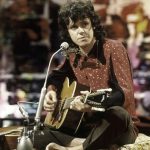Hank Williams – Jambalaya


Introduction
Imagine a warm Louisiana evening, the air filled with the sounds of laughter and music as families gather for a festive meal. This vibrant scene captures the essence of Hank Williams’ classic song “Jambalaya (On the Bayou).” Written in 1952, this song brings the spirit of the bayou to life, transporting listeners to a world of simple joys and heartfelt celebrations.
About The Composition
- Title: Jambalaya (On the Bayou)
- Composer: Hank Williams
- Premiere Date: 1952
- Album/Opus/Collection: Released as a single, later included in various compilations
- Genre: Country, Cajun
Background
“Jambalaya (On the Bayou)” is one of Hank Williams’ most enduring hits, blending traditional Cajun themes with his signature country style. Inspired by the lively culture of Louisiana, Williams penned this song to reflect the vibrant community spirit and culinary delights of the bayou. The song quickly became a staple in Williams’ repertoire and a favorite among fans for its catchy melody and relatable lyrics.
Musical Style
The musical style of “Jambalaya” is a delightful fusion of country and Cajun influences. The song features a simple yet infectious melody, driven by a lively rhythm that evokes the bustling atmosphere of a bayou gathering. Williams’ use of traditional Cajun instrumentation, such as the accordion and fiddle, adds an authentic touch to the piece, while his distinctive vocal delivery brings a heartfelt warmth to the lyrics.
Lyrics
The lyrics of “Jambalaya” tell a story of joy and celebration, centered around a traditional Cajun gathering. Williams sings of friends and family coming together to enjoy good food and company, with references to dishes like jambalaya and crawfish pie. The song’s refrain, “Son of a gun, we’ll have big fun on the bayou,” captures the carefree and festive spirit of the occasion.
Performance History
Since its release, “Jambalaya” has been covered by numerous artists across various genres, solidifying its status as a timeless classic. Notable performances include those by Jo Stafford, Fats Domino, and The Carpenters, each bringing their unique style to the song while preserving its original charm. The song’s widespread popularity is a testament to its enduring appeal and cultural significance.
Cultural Impact
“Jambalaya” has had a profound influence on both music and culture, transcending its country roots to become a beloved anthem of Southern hospitality and joie de vivre. The song has been featured in movies, television shows, and commercials, further embedding it into the cultural fabric. Its celebration of Cajun traditions has also helped to introduce and popularize this vibrant culture to a broader audience.
Legacy
Decades after its release, “Jambalaya” remains a beloved classic that continues to resonate with listeners of all ages. Its enduring popularity is a testament to Hank Williams’ genius as a songwriter and his ability to capture the essence of a place and time in his music. The song’s cheerful melody and relatable lyrics ensure that it will continue to be a favorite for generations to come.
Conclusion
“Jambalaya (On the Bayou)” is more than just a song; it’s a celebration of life, love, and community. Its infectious rhythm and heartfelt lyrics invite listeners to join in the festivities and experience the warmth and joy of a Cajun gathering. For those who haven’t yet experienced the magic of “Jambalaya,” I highly recommend seeking out a recording, such as Hank Williams’ original or one of the many delightful covers, and letting the music transport you to the heart of the bayou.











